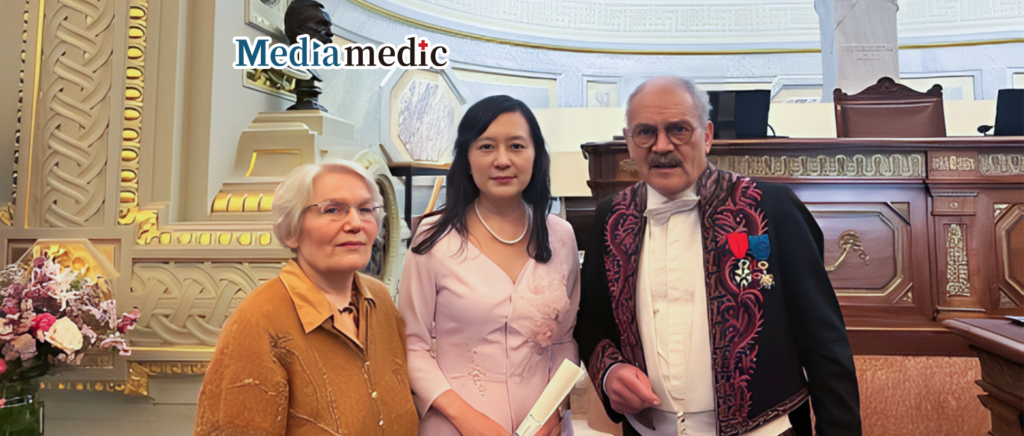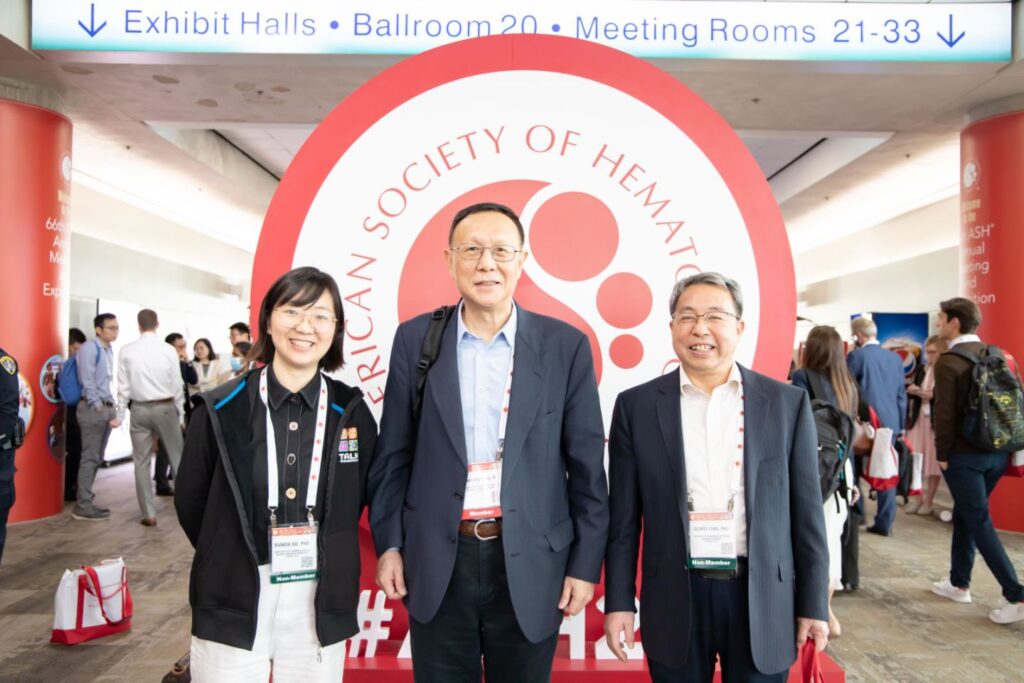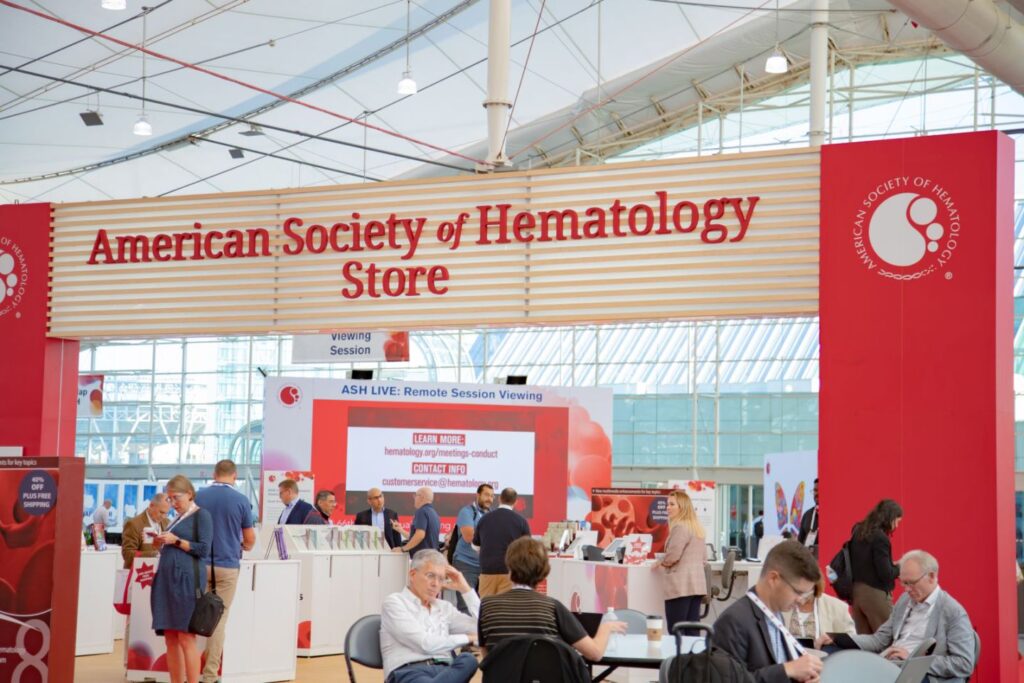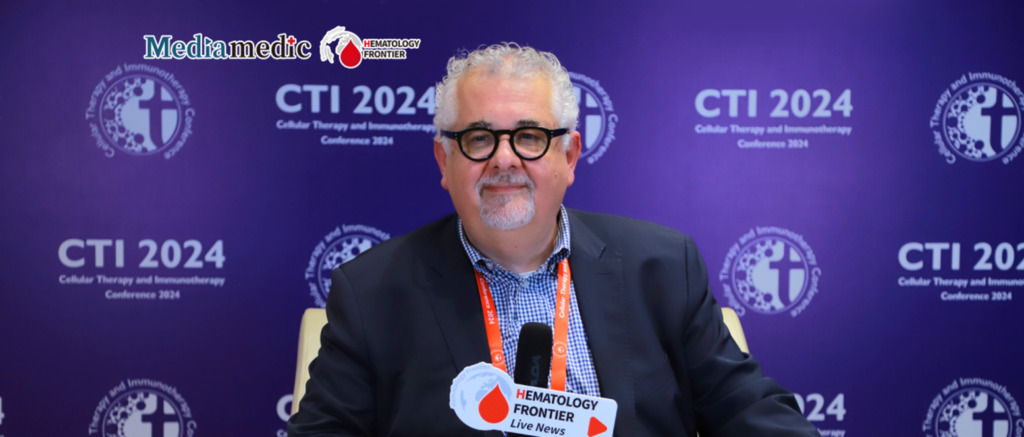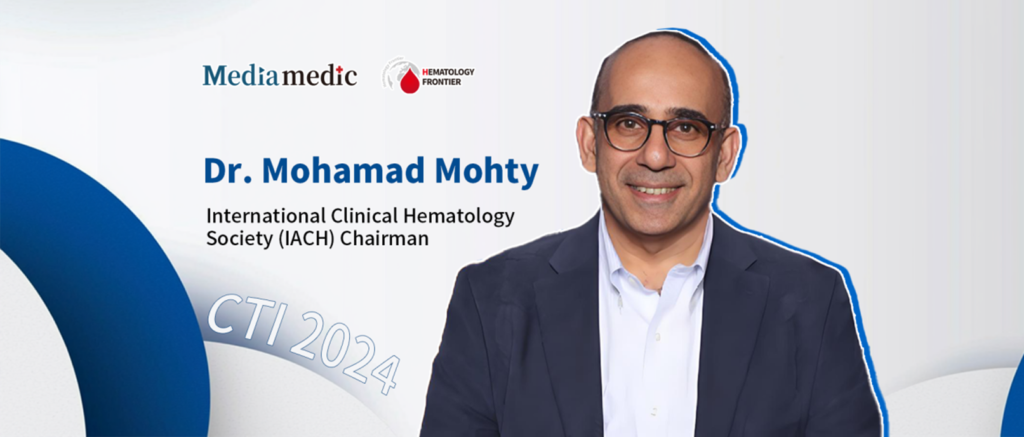Professor Weili Zhao , an Expert in Hematology From China, has Been Honored With the “Charpak-Dubousset Prize”
On December 17, 2024, French time, at the annual award ceremony of the French National Academy of Medicine (ANM), Professor Weili Zhao form Shanghai Ruijin Hospital and Professor Anne Janin from Paris Diderot University jointly received the "Charpak-Dubousset Prize." The prize was personally presented by Christian Boitard, the Secretary-General of the Académie Nationale de Médecine, and Jacques Belghiti, the Deputy Secretary-General of the same institution, in recognition of their significant contributions to the field of lymphoma.

